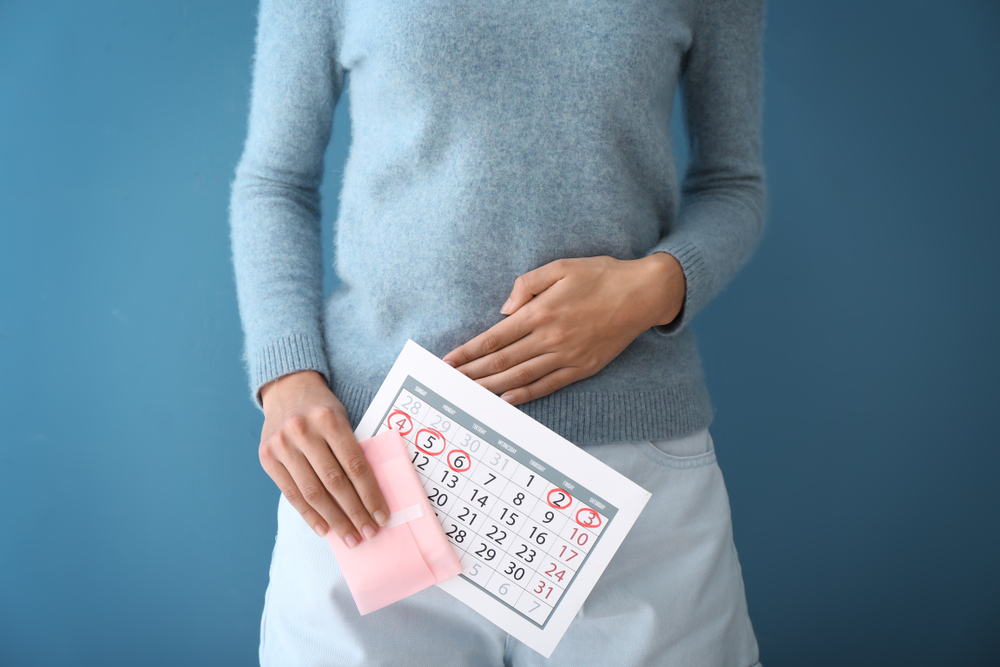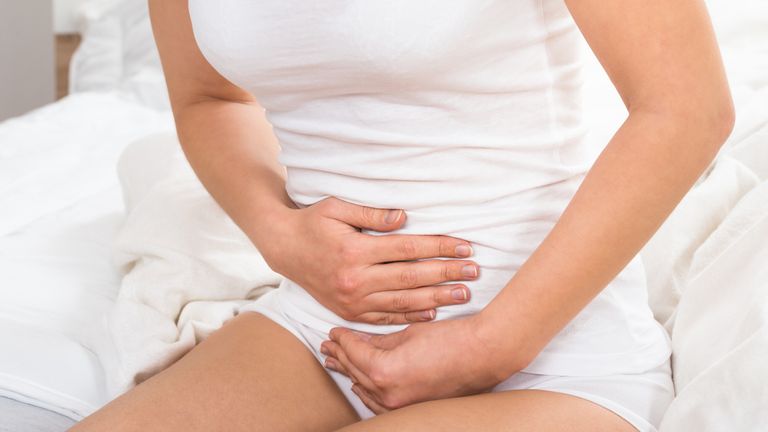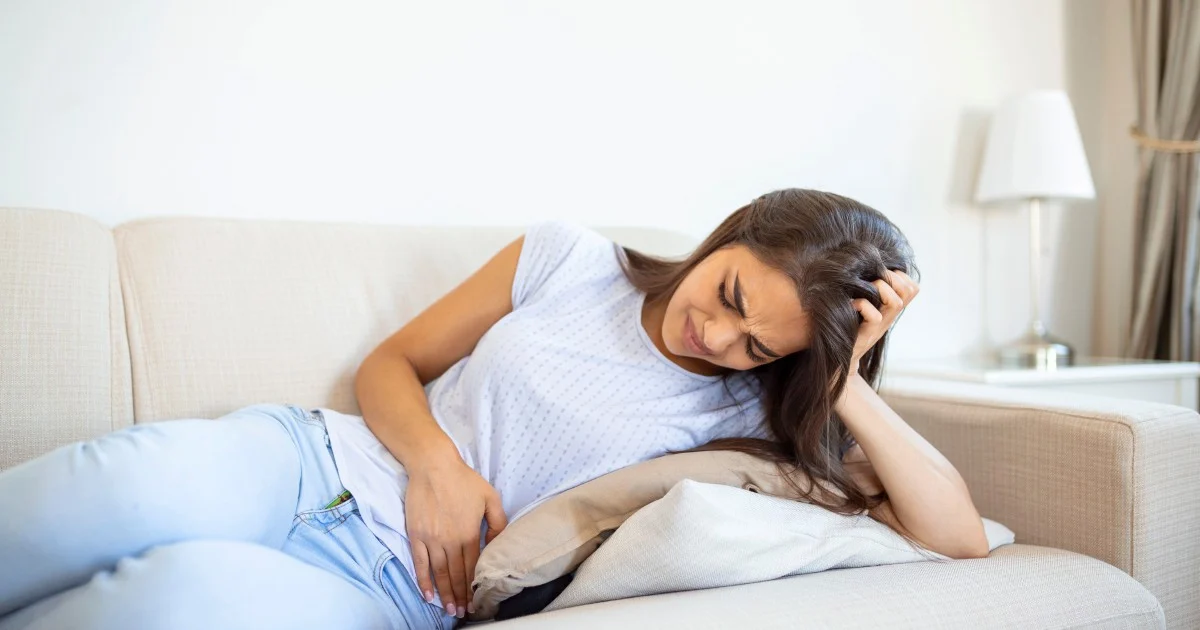Is it possible for periods to just stop at 49? Many women wonder about the timing of this significant change. Around the age of 49, it’s not uncommon for menstrual cycles to cease as the body transitions into menopause. This natural process varies from woman to woman, but for some, it marks the end of their reproductive years around this age. Let’s find out what triggers this change and what it signifies for women’s health.

Contents
- 1 Can Periods Just Stop At 49?
- 2 Why Does Perimenopause Happen?
- 3 At What Age Does Perimenopause Begin?
- 4 Frequently Asked Questions
- 4.1 What is the onset age of menopause?
- 4.2 What distinguishes natural menopause from surgical menopause?
- 4.3 When does perimenopause start and what influences its timing?
- 4.4 What are the symptoms of perimenopause?
- 4.5 Can periods stop suddenly in perimenopause?
- 4.6 How do you know when perimenopause is ending?
- 4.7 Is 49 considered a perimenopausal age?
- 4.8 What could make menstruation stop suddenly?
- 4.9 What should I do if my period suddenly stops?
Can Periods Just Stop At 49?
Yes, it is possible for periods to stop at the age of 49. This is generally related to menopause, which is the natural and permanent end of menstruation and fertility in women. Menopause occurs as part of the normal aging process when the ovaries gradually produce less estrogen and progesterone and stop releasing eggs. The average age for menopause in the United States is 51, but it can typically occur any time between the ages of 45 and 55.
When periods stop at 49 or around this age, it is considered a normal part of the menopausal transition, sometimes referred to as perimenopause. During perimenopause, menstrual cycles may become irregular before they cease completely, and this phase can last for several years. Women might experience a range of symptoms during this time, including hot flashes, night sweats, mood changes, and sleep problems, due to fluctuating hormone levels.
If periods stop suddenly before the age of 40, it’s termed premature menopause or premature ovarian insufficiency, and it’s advisable to seek medical advice to determine the cause.
Why Does Perimenopause Happen?
Perimenopause marks the transition leading up to menopause, the point at which a woman’s ovaries cease releasing eggs and she stops having menstrual periods permanently. This transition typically begins several years before menopause, usually in a woman’s mid-to-late 40s, but it can start earlier or later. The reasons behind perimenopause are largely natural and biological. Here are the key factors that contribute to its onset:

1. Natural Aging of the Ovaries
The primary reason for perimenopause is the natural aging of the ovaries. Over time, the ovaries gradually lose their ability to produce hormones, particularly estrogen and progesterone, which regulate the menstrual cycle. As women age, the quantity and quality of eggs diminish, leading to less frequent ovulation.
2. Hormonal Fluctuations
During perimenopause, hormone production becomes erratic. Levels of estrogen and progesterone no longer follow a predictable pattern as they did during the reproductive years. These fluctuations can cause the symptoms commonly associated with perimenopause, such as irregular periods, hot flashes, night sweats, and mood swings.
3. Genetics
The timing and onset of perimenopause are strongly influenced by genetics. If a woman’s mother or sister experienced early menopause or perimenopause, she is more likely to have a similar experience. Genetic factors can predetermine how early or late, and how rapidly or slowly, a woman will transition through perimenopause.
4. Lifestyle Factors
Certain lifestyle factors can influence the onset and severity of perimenopause symptoms. For instance, smoking is known to accelerate the depletion of eggs in the ovaries, potentially leading to an earlier onset of perimenopause. Other factors, such as diet, exercise, and stress levels, can also play a role in how the body manages the hormonal changes during this period.
5. Body Fat and Metabolism
Body fat plays a role in hormone production, particularly estrogen. Adipose tissue (fat cells) can produce estrogen, which might mitigate some effects of decreasing ovarian estrogen production. However, both excessive body fat and insufficient body fat can disrupt normal hormone levels, affecting the onset and experience of perimenopause.
6. Health Conditions
Certain health conditions can precipitate earlier or more symptomatic perimenopause. For example, autoimmune disorders, thyroid disease, or surgical removal of the ovaries can directly impact hormone levels and reproductive function, leading to symptoms of perimenopause.
At What Age Does Perimenopause Begin?
Perimenopause can begin at various ages for different women, but it generally starts in your mid-to-late 40s. There’s a wider range however, and it can begin as early as your 30s or last all the way until your mid-50s.

Here’s a breakdown of the typical timeline:
- Early 40s to Mid-40s: This is the most common timeframe for perimenopause to kick in. You might start experiencing irregular periods and other symptoms like hot flashes.
- Mid-40s to Early 50s: Fluctuations in hormones become more pronounced during this stage. Periods become increasingly irregular and might stop altogether for a while.
- Early 50s: This is around the average age for menopause (cessation of periods for 12 months) in the United States. However, some women might transition through perimenopause well into their mid-50s.
Frequently Asked Questions
What is the onset age of menopause?
Menopause typically sets in around the age of 49. However, factors such as genetics and certain lifestyle choices could influence the onset.
What distinguishes natural menopause from surgical menopause?
Natural menopause is a biological process that takes place over several years whereas surgical menopause occurs abruptly after the removal of ovaries through surgery.
When does perimenopause start and what influences its timing?
Perimenopause starts in the 40s. Factors like genetics, lifestyle choices, chemotherapy, radiation, and smoking can influence its timing.
What are the symptoms of perimenopause?
Symptoms include irregular periods, hot flashes, mood swings, and an increased risk of depression.
Can periods stop suddenly in perimenopause?
Sure. A person may go 60 days or more without a period, especially in the later stages of perimenopause.
How do you know when perimenopause is ending?
The complete absence of the menstrual cycle for 12 months indicates the end of perimenopause.
Is 49 considered a perimenopausal age?
Yes, the mid-to-late 40s are typically considered the perimenopausal stage.
What could make menstruation stop suddenly?
Hormone disruption due to emotional stress, extreme weight loss, excessive exercise, or certain reproductive disorders can cause menstruation to stop suddenly.
What should I do if my period suddenly stops?
If you are sexually active and your period suddenly stops, first take a pregnancy test. Hormonal contraceptive use can also cause periods to cease.
I am a medical student with experience and interest in Women’s health and well-being.